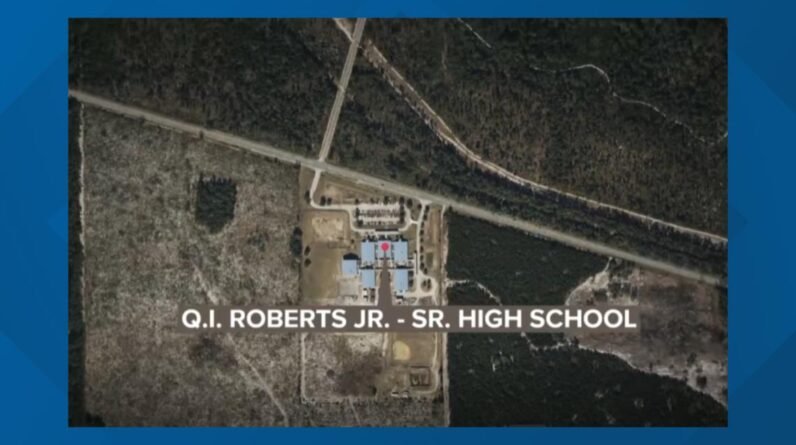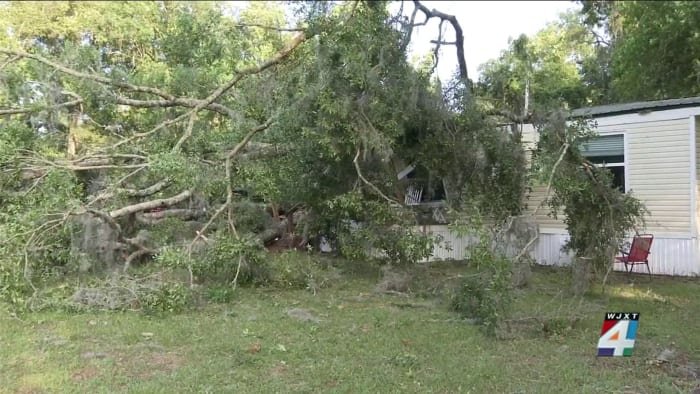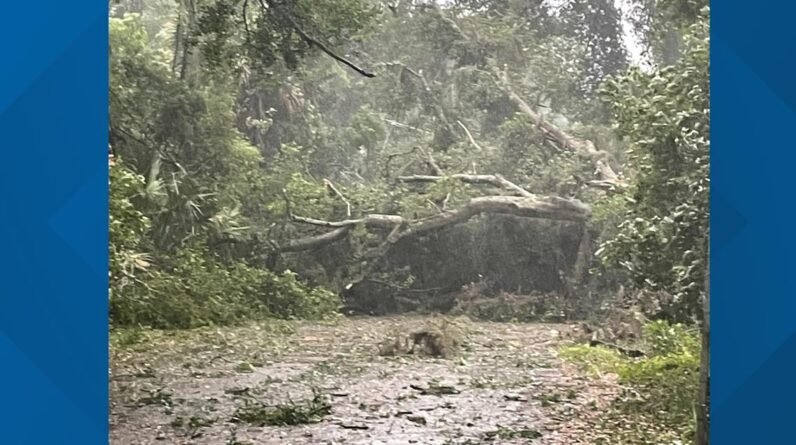
Attorney General Merrick Garland says a majority of the $9 million in the settlement will be in the form of loan subsidy funds that Jacksonville residents can use.
JACKSONVILLE, Fla. — Ameris Bank has agreed to enter in a consent decree regarding the Department of Justice’s allegations that the bank engaged in redlining as it violates the Fair Housing Act and the Equal Credit Opportunity Act – two federal civil rights laws that prohibit discrimination in lending.
“Redlining occurs when lenders deny or discourage applications or avoid providing loans in neighborhoods because of the race, color or national origin of the people who live in those neighborhoods,” Attorney General Merrick B. Garland said during a press conference held in Jacksonville Thursday.
The DOJ’s complaint stems from the bank allegedly denying or discouraging home loan applications and other credit opportunities and services in “major Black and Hispanic neighborhoods here in Jacksonville.” As a result of DOJ’s investigation, Garland says they’ve reached a settlement with Ameris Bank and if approved by the court, the bank would be required to pay $9 million to expand access to credit opportunities for residents of Black and Hispanic neighborhoods in Jacksonville.
Garland accuses Ameris Bank of the following:
- Establishing branches in specific areas of Jacksonville to serve majority white neighborhoods and to avoid serving Black and Hispanic neighborhoods
- Failing to open one branch in a predominately Black and Hispanic neighborhood, but opened 18 full-service branches in other parts of Jacksonville
- In 2019, Ameris closed two Jacksonville branches as part of its “efficiency initiative.” Garland says Ameris identified both of the branches of having “minority populations higher than nearby branch locations.” One of the branches that was located in what Ameris called “the Urban Core of Jacksonville,” Garland says, was the closest branch to most of the city’s Black and Hispanic neighborhoods. Garland says the branch was rated as one of the “best financial performers,” among all of the bank’s locations across the country, according to Ameris. Ameris did not close any branches in the predominately white areas of Jacksonville as part of their initiative, Garland says.
- In 2020, Ameris sent out 22,000 free checking mailers that Garland says the bank said was targeted to low and moderate income areas in majority of minority neighborhoods. Garland says the postcards were mailed out to 13 zip codes in Jacksonville as they had “images of white models” on them. Garland says “not one postcard was sent to a single resident in a majority Black and Hispanic neighborhood.”
- Assistant Attorney General Kristen Clarke of the Civil Rights Division alleges that Ameris knew they were redlining for years and “did not make sufficient efforts to reach neighborhoods of color [and] mortgage bankers failed to serve those communities and marketing and outreach efforts were directed toward white communities.”
What happens with the settlement money?
Garland says a majority of the $9 million in the settlement will be in the form of loan subsidy funds and can be used by Jacksonville residents for down payments to lower their interest rates and to make home improvements that will increase the value of their home. The settlement also requires that the bank must open its first full-service branch located along the St. Johns River, in a majority Black and Hispanic neighborhood in Jacksonville.
Garland launched the ‘Combating Redlining Initiative’ in October 2021. Once the settlement is approved, Garland says the initiative would have secured more than $100 million in total for communities across the country that have been harmed by “discriminatory lending practices.”
Over past two years, the DOJ says they have reached 10 settlements with lending institutions to resolve allegations of redlining.







